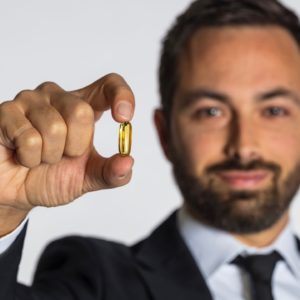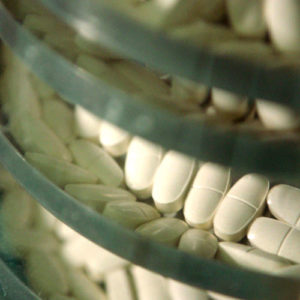 Athletes and performance-enhancing substances
Athletes and performance-enhancing substances
Athletes have used many substances to enhance performance or speed recovery from injury. Pharmaceutical approaches have been popular. Over the centuries these have ranged from brandy and strychnine (yes, you read that right, the poison), to nitro-glycerine (yes, you read that right too), cocaine and opium. Athletes have been also lured by modern pharmaceuticals, amphetamines, steroids and hormones such as Erythropoietin, however athletics authorities tend to frown on these.
Unsurprisingly, diets and dietary supplements have also been popular to give athletes that extra edge. Dietary supplements have included honey and herbs, hallucinogenic mushrooms and testicles used in the ancient Greek Olympics. Fast forward and we are using Coenzyme Q, and colostrum (the first type of milk produced by the mammary glands of mammals, a bit more palatable than testicles). While dietary supplements have been very popular, there is little evidence to suggest that these have any effect beyond a warm inner glow.
Vitamins and Athletic performance
Vitamins have not been neglected in the constant striving for athletic prowess. Vitamins are of course vital for our body’s functioning, and vitamin deficiency is serious. And many vitamins are involved in physiological processes that could be of benefit to sport. Vitamin deficiencies can certainly impair exercise performance. So vitamins could plausibly enhance muscle strength, endurance or recovery from exercise-induced injury. Not surprisingly athletes have enthusiastically embraced vitamin supplementation, however, their use is often not based on either medical advice or sports science.
Back in 1985, one author decried the use of vitamin supplements as a fad with little evidence to support it (and colourfully described the relationship between food consumption and human functioning as “…depicts [humans] as a kind of organic pudding”). More modern overviews did not find any significant effect of vitamin supplementation in healthy athletes on an adequate diet.
While multivitamins do not seem to have an effect on running or cycling, what about more focused supplementation?
Vitamin B group
The B group vitamins (B1, B2, niacin, B6, B12, biotin, folic acid and pantothenic acid) are involved in diverse roles such as energy production, absorption and transport of iron and blood cell production. All of which could plausibly be involved in athletic performance. However, there are few studies on the B group vitamins outside of the general multivitamin studies, these have shown no benefit in supplementation above the recommended daily intake. However, in older adults, who may have low B group vitamin levels, there may be some benefit. Vitamin B12 supplementation was found to be helpful for improved exercise performance in people with chronic obstructive pulmonary disease, post-menopausal women and older adults.
Antioxidant vitamins and oxidative stress
Cellular damage from oxidative stress, initiated by excessive levels of aerobic exercise-produced reactive oxygen species, is an issue for endurance athletes. Reactive oxygen species may also contribute to the onset of fatigue. So it might be assumed that use of antioxidant vitamins would help combat damage and fatigue. There is widespread use of antioxidant vitamins based on this assumption.
However, there is now substantial evidence that reactive oxygen species play a crucial role in exercise adaptations, and supplementation can interfere with this. Vitamin C and E supplementation prevents some cellular adaption to endurance training, and overall has no beneficial (and possibly even detrimental) effects on endurance training.
Vitamin D
As well as its well-known importance for calcium homeostasis and bone metabolism, Vitamin D also has important direct effects on skeletal muscle. Thus vitamin D has been a recent focus of supplementation for athletes. While higher plasma concentrations of vitamin D are associated with reduced injury rates and improved sports performance, it is not clear if vitamin D supplementation will improve athletic performance or injury recovery in people who are not vitamin D deficient.
General studies have shown interventions with vitamin D supplements have had mixed results, with a positive effect on muscle function observed only in participants with vitamin D deficiency. Controlled clinical trials in rugby players and Celtic footballers have shown no benefit. These studies had a large number of subjects, and despite ensuring that vitamin D levels were in the appropriate range, no exercise benefits were found.
It may be that some groups who are vitamin D replete may benefit from supplementation, but there is no strong evidence to support this.
Take home message
Vitamin supplementation may seem like an obvious way to improve sports performance, but biology is complex, and what may seem intuitively true can be misleading. For people with good nutrient status, supplementation is of no benefit, and in the case of antioxidant vitamins, may even be counterproductive.
Health professionals agree that vitamin supplements are not necessary for the individual on a well-balanced diet (although they may be recommended for certain groups, including the elderly, vegans, and women of childbearing age). For most athletes, their normal food intake should provide the recommended daily allowance of vitamins; however, athletes involved in heavy training may need more of several vitamins although this should be easily obtained through the increased food intake associated with heavy training.
Taking vitamin supplements, especially levels well above the recommended daily intake, will not improve either athletic performance or injury recovery in the vast majority of athletes who have adequate nutritional intake, and are of no more use to athletes than consuming ox testicles were for ancient Greek Olympians.
About the Author – Dr Ian Musgrave BAppSc, MSc, PhD
Dr Musgrave is a molecular pharmacologist/toxicologist who works at the University of Adelaide. He has a broad interest in natural product pharmacology and drug design as well as an interest in evolutionary biology, science communication and is a regular contributor to The Conversation. He has assisted the Vitamania team to ensure scientific accuracy around the chemistry of vitamins presented in the film.


